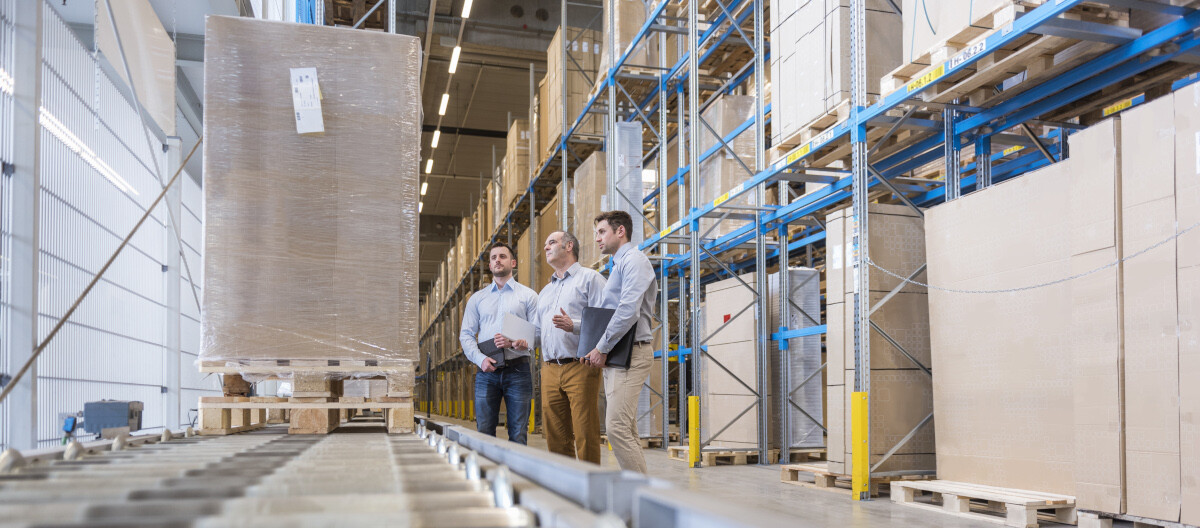Eight megatrends in logistics
Digitalisation and the rapid development of artificial intelligence (AI) are creating disruptive innovations in many industries. Logistics is no exception: new technologies and the increasing pace of automation are poised to revolutionise the industry. Investors have also recognised this and are increasingly investing in innovative tech start-ups in this area.
The Centre for Applied Research on Supply Chain Services, part of Europe’s leading research body, the Fraunhofer Institute, is currently focusing on eight megatrends that researchers believe have the potential to transform logistics in the coming years:
- Digitalisation
- 3D printing
- Autonomous vehicles
- Robotics
- The information society
- Diversification
- Servitisation
- Sustainability
According to the experts, these trends could lead to disruptive innovations. In 2023, this vision of the future has evolved even further: both generally in terms of the use of data to support resilience and sustainability across the industry, and more specifically through the new possibilities of artificial intelligence in both logistics and the supply chain.
How AI is revolutionising the supply chain
Supply chains generate data which, with the use of artificial intelligence (AI) methods, can increase value creation. The analytics department of the Fraunhofer working group develops algorithms which are tailored to the respective applications, and can also make automated decisions along the entire supply chain.
Here are a few examples:
- AI can help to optimise trajectory control: an ideal braking torque generated by AI saves energy and thus electricity costs for the operators. Driver assistance systems develop energy-efficient speed profiles for optimal schedules and reduce simultaneous departures, which generate high and expensive load peaks.
- AI can optimise warehousing: the algorithm not only ensures that space is used optimally, it also takes into account occupational safety as well as short walking and driving distances.
- AI detects irregularities in goods in production and takes appropriate countermeasures. AI also optimises the order in which the manufactured goods are loaded into the HGV for transportation.
Further research projects
The above examples are already live, but there are further research projects underway at the Fraunhofer Institute.
- In the “Artificial Intelligence in Transport for Emission Reduction" project, researchers are working on making transport logistics more sustainable. Here, AI helps freight forwarders to utilise routes to capacity. When calculating proposals, the intelligent system not only works with the freight forwarder's database, but also incorporates additional relevant factors to avoid empty runs. This means companies can improve their environmental footprint and profitability.
- In the project “Process Data Analysis and Forecasting of Throughput Times in Logistics and Production", AI forecasts were researched and used to detect delivery and production delays at an early stage. AI can recognise the relevant influencing factors and estimate how they will affect the operation – these processes are simply too complex for humans to visualise and combine. Thanks to AI, logistics service providers can anticipate deviations from the planned time cycle at an early stage and prevent backlogs during handling.
- The research project "Democratisation of AI with understandable and easily accessible Machine Learning Operations (MLOps)" has just been launched. Its main aim is to develop user-friendly AI tools for industrial applications, which can be operated without expert AI knowledge. With this simplified access to artificial intelligence for all, the Fraunhofer working group aims to counteract the shortage of machine learning experts.
What new skills do logistics providers need?
Rapid technological development means that supply chain managers and other logistics providers with a strategic remit need additional skills to be equipped to face the challenges of the future. Digitalisation, automation and sustainability are key trends for future changes in both the operating procedures and competencies of qualified logistics personnel. Professionals need to get to grips with automated processes and familiarise themselves with them.
While routine and standardised activities are increasingly automated and carried out flawlessly, swiftly and cost-effectively by robots and other machines, employees who coordinate, plan and monitor the use of these machines are still needed.
Essential skills for a digital future are twofold: firstly, appropriate IT and analytical skills in order to align programs with their respective purpose and to be able to read relevant information from large amounts of data; secondly, “fast failure” skills such as agility, a positive attitude to mistakes, the joy of experimentation, and interdisciplinary thinking.

